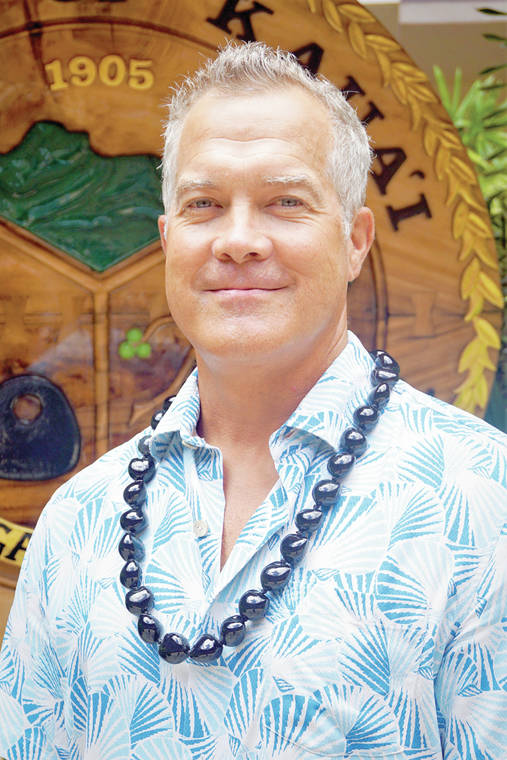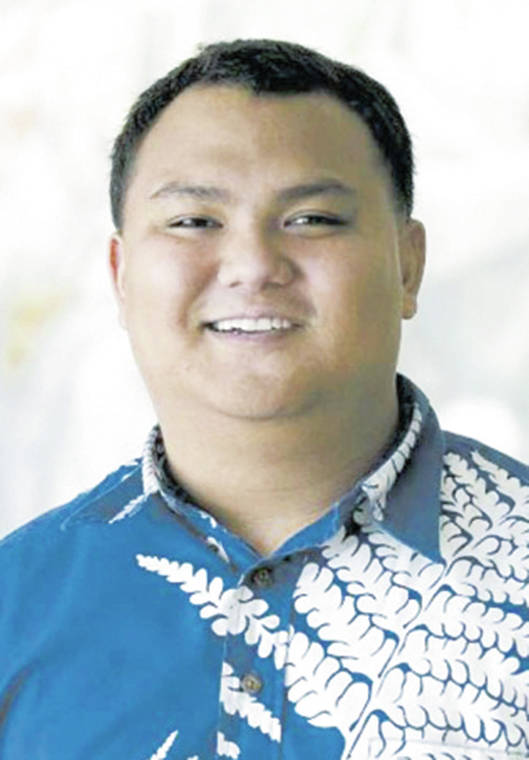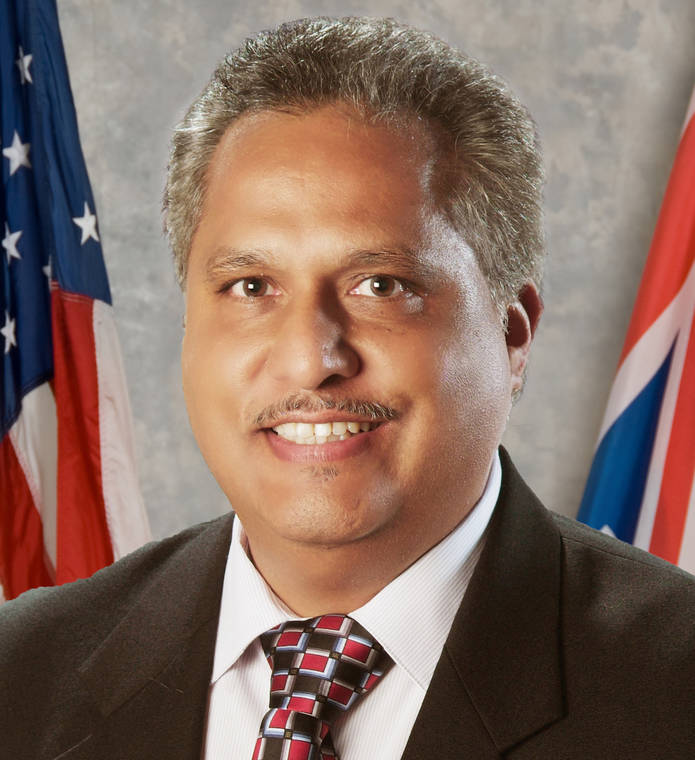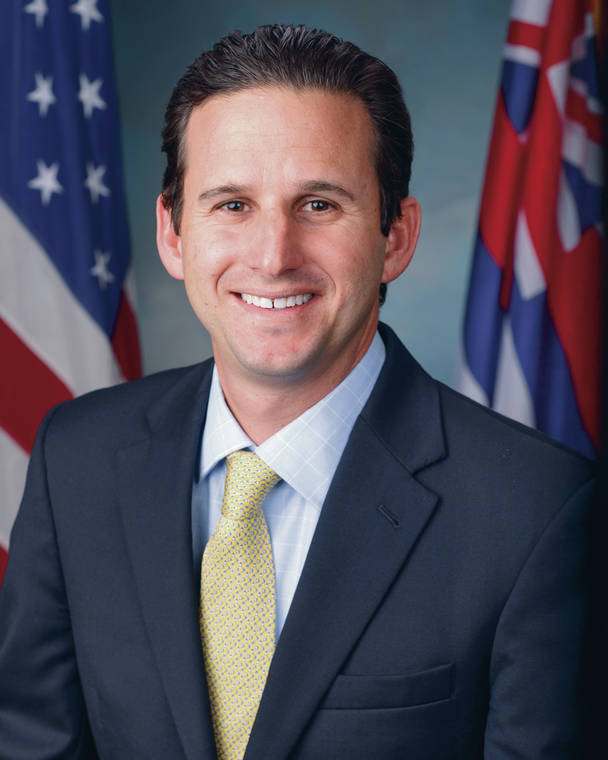LIHU‘E — The county should be receiving its first share of American Rescue Plan funds by May 10, U.S. Sen. Brian Schatz reported Wednesday.
However, at this time, the county has no specifics to share about how it plans to spend the expected $14 million in assistance it’s expecting as it awaits guidance from the U.S. Department of Treasury on how it can utilize the funds.
“In the meantime, we have made steps to ensure the county meets the pre-award requirements and is eligible to receive payments from the Treasury for this program,” county Managing Director Michael Dahilig said.
Schatz joined the County Council virtually Wednesday to discuss the $1.9 trillion COVID-19-relief American Rescue Plan and what it means for Kaua‘i.
The overall plan included at least $6.1 billion to the state, split among a variety of sectors, including health care, agriculture, rent- and utility-assistance programs and unemployment assistance.
“The American Rescue Plan is what it sounds like,” Schatz said. “It was designed to get us through this dark economic period, during COVID-19.”
The act passed in March, with many of the programs coming to fruition now, like the $22-million rental-assistance program that will open for applications next week, administered by the Kaua‘i
Government Employees Federal Credit Union. County Housing Agency Director Adam Roversi said Wednesday that on the lower end, the county’s need for rental assistance is about $12 million. On the higher end, it’s over $20 million.
There have been two rounds of rental assistance the county has so far, one program operated by the state, and another by the county.
Councilmember KipuKai Kuali‘i pointed to situations where tenants and landlords are not legally operating as such as a barrier to qualifying for the program. And he’s worried that’ll happen with this upcoming program.
“I know a lot of people are in different situations out there where they don’t technically pay rent,” Kuali‘i said. “They’re affected, they’ve lost their income because they’re unemployed, but they’re not going to be able to get this kind of assistance. I think there’s going to be a lot of people out there that are not going to be able to take advantage of (help) in that way.”
Kuali‘i asked if unexpended rental-relief funds would be able to go to local governments to construct transitional or affordable housing.
Schatz raised no objections to that, but noted he does not have any legal authority and would defer to the Treasury. However, Schatz said he’d make necessary connections with U.S. Department of Housing and Urban Development Secretary Marcia Fudge.
“(Affordable housing) is a challenge,” Schatz said. “I think if the county came up with a plan for a specific project or a way to address transitional-housing needs, the ARP money is absolutely appropriate for that.”
Schatz also touched on the American Jobs Plan, an infrastructure bill currently being worked on in Congress.
“The American Jobs Plan is more likely to be physical infrastructure that everybody gets to enjoy, as opposed to direct subsidies to institutions and small businesses,” Schatz said.
“It’s not emergency funding, therefore, less likely to be like cash assistance, cash relief, and more likely to be those kinds of things that we need to do over a very long period of time.”
Next week, the administration will present its fiscal year 2022 supplemental budget, which spans from July 1, 2021 to June 30, 2022.
At the same meeting, the council held a public hearing for a bill that adjusts the amounts estimated in the county’s FY21 budget, specifically the transient accommodations tax revenue, which made up about $7.467 million in the budget. This would be an option for the county to use the ARP money for.
“The American Rescue Plan is just fundamentally different from (Coronavirus Aid, Relief, and Economic Security Act),” Schatz said. “It is designed to alleviate budget shortfalls.”
The county will have until 2024 to expend the funds if approved by the council and eligible for payments from the Treasury.
•••
Sabrina Bodon, public safety and government reporter, can be reached at 245-0441 or sbodon@thegardenisland.com.








without rich property owners paying taxes and federal bailouts, this place would be even more broke…..
Every politician in America loves to tell their constituents how much pork they are bringing home for local projects. But all that pork must be paid for by taxpayers; and those same politicians do not tell us how much they are taking from us in order to give a portion of it back to us. I’d rather keep that money in the first place and not send it to the politicians so they can send part of it back to me.
Articles like this one are similar to the articles we see when some local person goes to Vegas and wins a jackpot. But those articles do not tell us how many people lost how much money to the casino to enable the casino to let somebody win a portion of it for a jackpot.